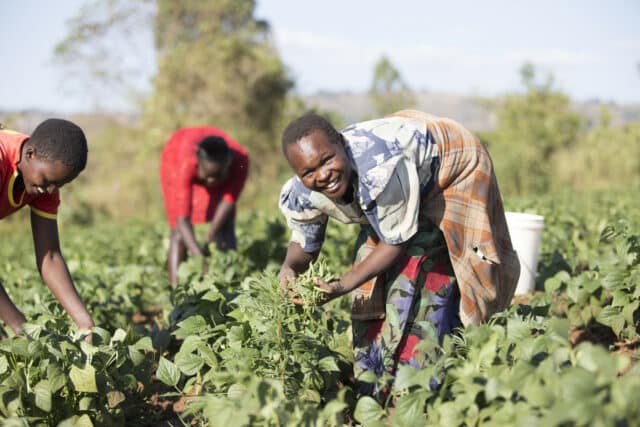Our work
What we do
Farm Africa reduces poverty in eastern Africa by helping farmers grow more, sell more and sell for more, while protecting the environment for years to come.
Boost productivity
For smallholder farmers, boosting productivity means producing more crops, fruits and vegetables on the same amount of land, or making livestock farming more efficient and getting more meat, milk, eggs or other animal products from the same amount of feed, work and land.
Find out moreIncrease incomes
When farmers increase their incomes, they can reinvest in their family and their farming. They can grow and eat healthier food, pay for their children’s education and build resilience to climate change.
Find out moreIncrease food security and nutrition
Food security is a human right and critical challenge for farmers in eastern Africa. Increasing food security and nutrition is vital for a sustainable, equitable, healthy and resilient future.
Find out moreStrengthen food systems
From increasing production to strengthening markets, reducing food loss to influencing policies, Farm Africa helps overcome bottlenecks from farm to fork.
Find out moreAct on climate change
Farm Africa supports rural communities in eastern Africa to strengthen their resilience and adaptive capacity to climate change as well as reduce greenhouse gas emissions.
Find out moreProtect ecosystems
Protecting fields, forests, grazing lands and water resources secures a more sustainable future for the people who rely on them locally and for the planet we all share.
Find out moreConnect farmers to markets
Improving small-scale farmers’ access to markets reduces poverty and increases food security.
Increase access to finance
Farm Africa supports farmers and agribusinesses across eastern Africa to gain access to the affordable finance they need to thrive.
Find out moreSupport businesses
Supporting small-scale farmers is not enough to drive development in rural areas. Farm Africa also supports the small businesses that connect small-scale farmers to markets.
Find out moreEmpower women
Female farmers in eastern Africa face many challenges. Farm Africa supports women to develop new sources of income and work their way out of poverty.
Find out moreBoost youth employment
Youth unemployment is high across eastern Africa. Farm Africa helps create dignified and fulfilling job opportunities for young women and men across the agricultural sector.
Find out more
